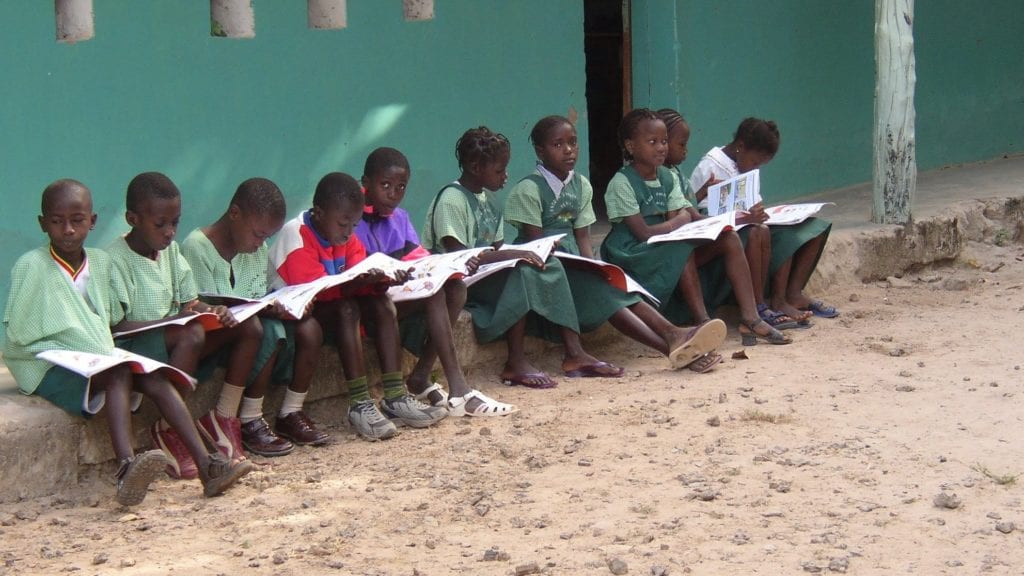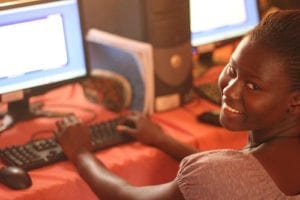Three ways that the broken education system affects families in Guinea-Bissau (West Africa)
1. In Guinea-Bissau, families can’t afford basic school supplies.
In the United States, the average family spends more than $800 to get their kids ready to go back to school. For many parents in Guinea-Bissau, that’s more than what they make in a year. As a result, they can’t afford to give their kids basic school supplies.
2. The Guinea-Bissau government only spends $66 per student, a tiny fraction of what is spent on education in other countries.
Each year, the U.S. government spends $13,000 per student on public education. In Guinea-Bissau, the government spends $66 per elementary student. As a result, “schools” in many villages are little more than several wooden benches surrounded by a thatch wall.
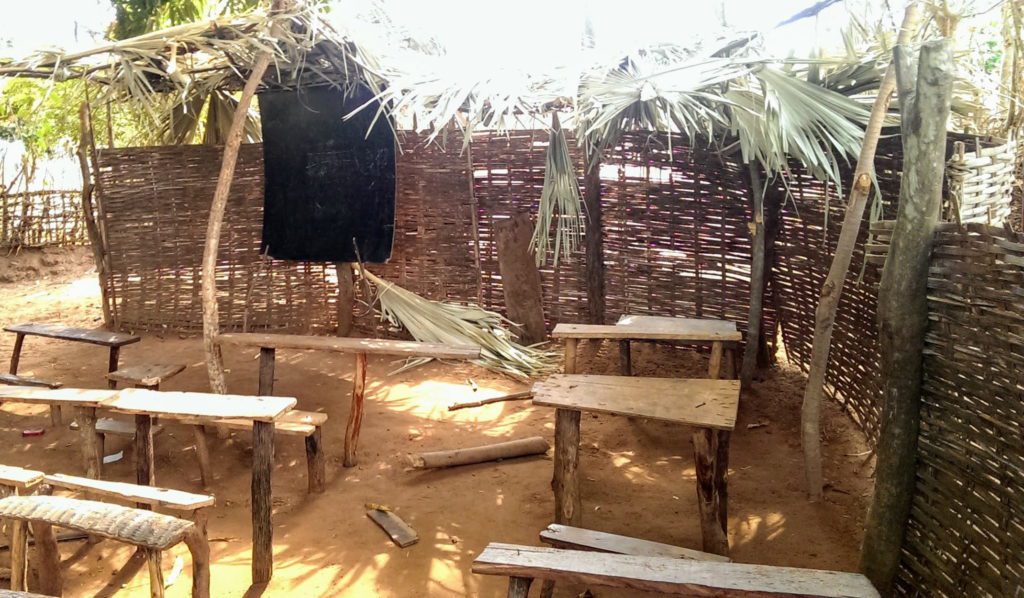
3. Teachers in Guinea-Bissau are on strike for months at a time.
In the United States, teachers rarely go on strike. In Guinea-Bissau, teachers often don’t get paid their promised salaries, which leads to months-long teacher strikes. Oftentimes, half the school year is canceled because of teacher strikes. So it’s no surprise that more than 1 out of 3 elementary school-aged children in Guinea-Bissau are not enrolled in school.
Because of the state of education in West Africa, many young people enter adulthood without any marketable job skills. This means they aren’t able to earn a reliable income or provide basic things for their families, such as food, clothing and medicine.
Carlos Mendes could have been among them. But he was given a new opportunity in life.
Carlos is a welding student at the WAVS vocational school campus in Bissau, the capital of Guinea-Bissau. Coming from a poor family, Carlos wasn’t able to make it through high school. So instead, he’s enrolled in the WAVS welding program. He’s learning a skill that will allow him to earn a stable income for the rest of his life!
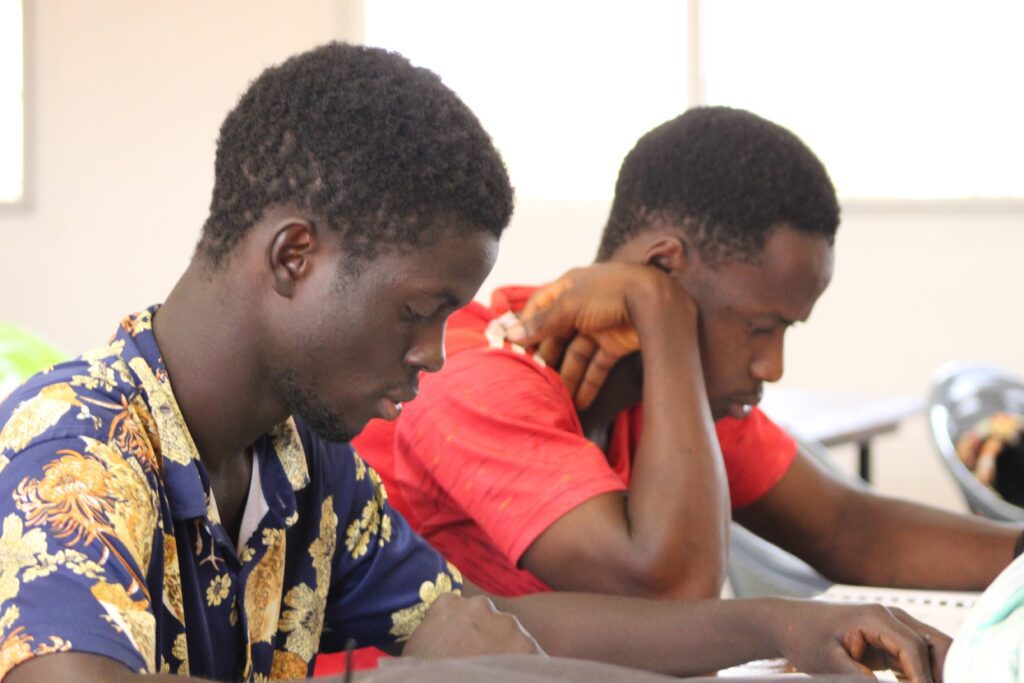
Carlos understands that breaking the cycle of poverty begins when at least one person in a family secures a good-paying job, and the most effective way to accomplish that is by learning a valuable job skill.
WAVS schools have a track record of equipping their students with the skills they need to succeed in life. More than three out of four graduates go on to find employment, start their own businesses, or continue their studies.

Today, you can sponsor a student like Carlos and help break the cycle of poverty.
Students like Carlos invest in their own education by paying a small part of their tuition fee. To keep it affordable, One Student members cover the rest ($30 per month).
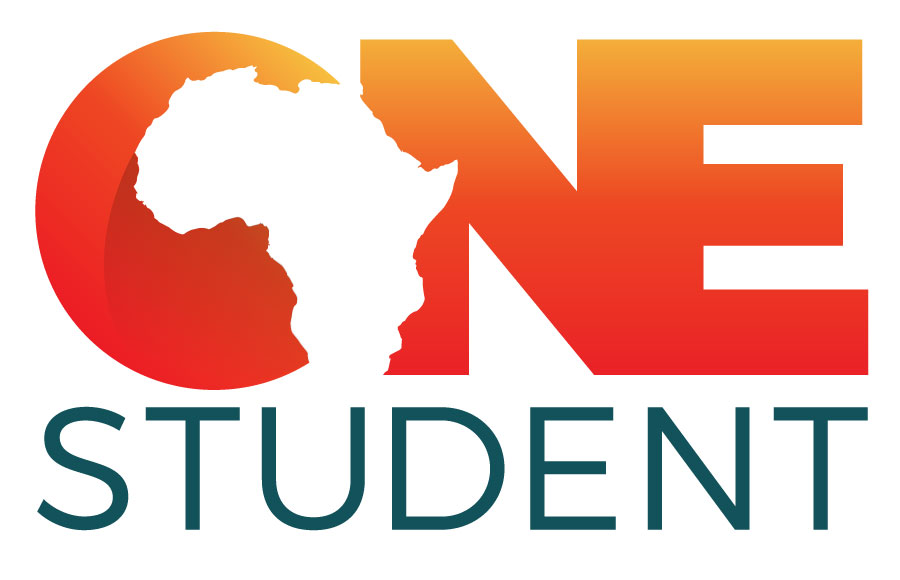
Join the One Student community and make an impact in the lives of young people in Guinea-Bissau, One Student at a time. Together, we can give young people the opportunity to learn the skills they need to work for a brighter future!

